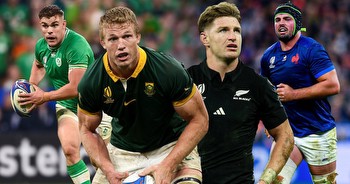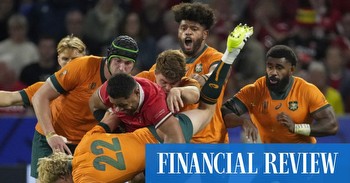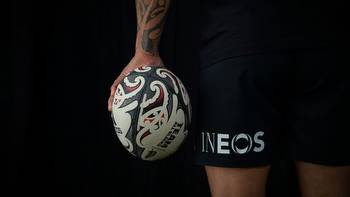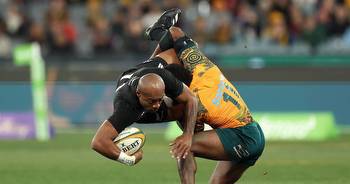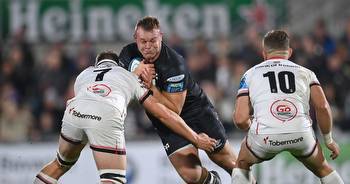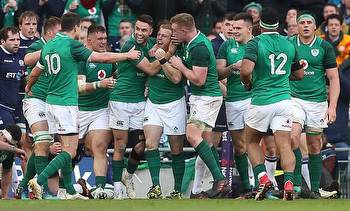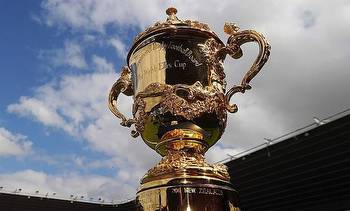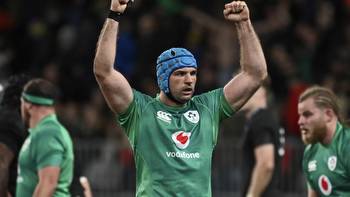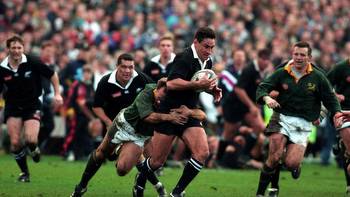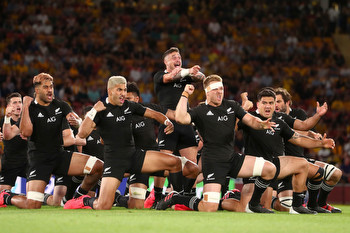Rugby: Why the real winner of the proposed Nations Championship won’t be NZ
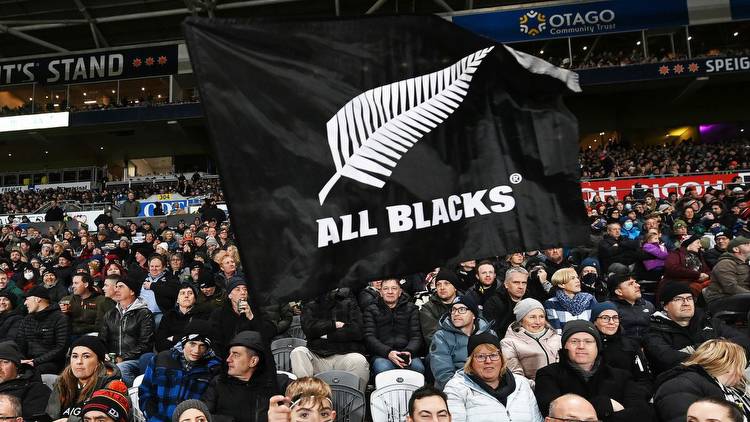
New Zealand Rugby (NZR) CEO Mark Robinson has returned from Europe a little chipper that, while he was there, agreement was all but reached to launch the Nations Championship in 2026.
The details arestill to be finalised, but broadly, the Nations Championship will feature 12 countries - the Six Nations, New Zealand, Australia, Argentina, South Africa and probably Japan and Fiji - and bring a competitive format to the July and November test windows.
Robinson is feeling upbeat about this concept because it brings structure and meaning to two vital parts of the test calendar, and in doing so, will also trigger a significant cash windfall from improved broadcast rights.
While we don’t know how much extra cash, it’s likely to be significant as, when the Nations Championship concept was first on the table back in 2019, it came with the promise of $833 million to be shared annually.
Money of that nature tends to make chief executives happy, but what Robinson may also have noted while he was in Europe is just how much financial distress there is over there.
The Welsh Rugby Union is in such strife that it is offering players derisory contracts and in England, two professional clubs - Worcester and Wasps - went bust last year, and two more by all accounts are on the verge of going under in the next few months.
The English Premiership, which in 2019 sold a 27 per cent stake to private equity firm CVC for $400m, recently reported a $72m annual loss.
The latest revelation out of England is yet more alarming as, according to reports, the Rugby Football Union - which along with France, Scotland, Ireland, Wales and Italy, agreed in 2021 to sell a 14 per cent in the commercial assets of the Six Nations to CVC - is expected to announce a $14m loss for the 2022-2023 financial year, that has been forecast to blow out to $80m next year.
There are, therefore, two reasons why New Zealand needs to be paying attention to the financial carnage ripping through England and Wales.
Firstly, what partly drove NZR to do a private equity deal with Silver Lake last year was fear of being left behind - a point PWC made in its independent review of the transaction.
“CVC’s investment in the Six Nations is expected to improve Northern Hemisphere rugby (through the introduction of technology, an improved fan experience, and support with commercial negotiations),” it said.
“As the Northern Hemisphere offering improves, viewership and engagement will increase, leading to further commercial success.
“This has the risk of enabling international clubs to offer players enhanced remuneration packages which may attract New Zealand players.”
PWC’s prediction has so far proven to be spectacularly inaccurate - and the only thing growing in England and Wales is the debt pile.
The second reason for NZR to see the situation in the UK as something of a canary down the coal mine is that it has highlighted who the real winner has been in these private equity sell-outs.
Assuming CVC took its 27 per cent distribution from the English Premiership, then it will have pocketed $35m, while the league itself lost $72m.
And therein lies the danger of sports bodies selling equity - the risk is high that the cash will flow back to the investor and not the intended beneficiaries.
Which takes us back to the Nations Championship and who in New Zealand will ultimately benefit most from that.
If we estimate that it will net NZR an additional $40m of annual income and that the national body achieves its forecast of making total revenue of $350m-plus from 2026, then Silver Lake’s distribution that year will be between $25m to $31m, depending on the final size of its equity stake.
If we then assume NZR revenues grow at their historical eight per cent per annum over the next five years, then Silver Lake’s total distribution in that period will be somewhere between an estimated $140m and $180m.
Then think back to the justification for doing a deal - it was to make a transitional investment in the community game - which NZR believes it has done, by putting $60m of Silver Lake’s $200m into a legacy fund.
But two things need to be noted about this: Silver Lake will be making three times as much money as the community game and the real winners in the Nations Championship broadcast bonanza won’t be local clubs, but a US fund manager.
And secondly, it has to be asked whether $60m will prove to be a significant enough investment to deliver the community game the long-term viability it craves.
The suspicion is that money will be long gone before the end of this decade and while local clubs are barely able to buy a bag of balls for their junior team, Silver Lake will be rolling in cash - and no one in New Zealand will be feeling chipper about that.

